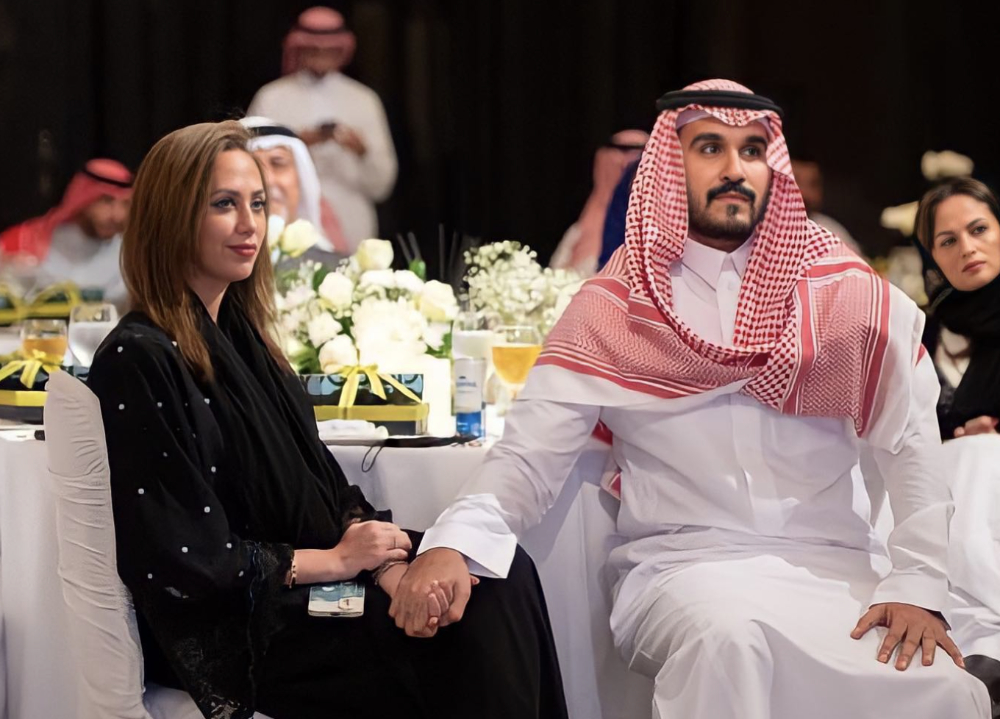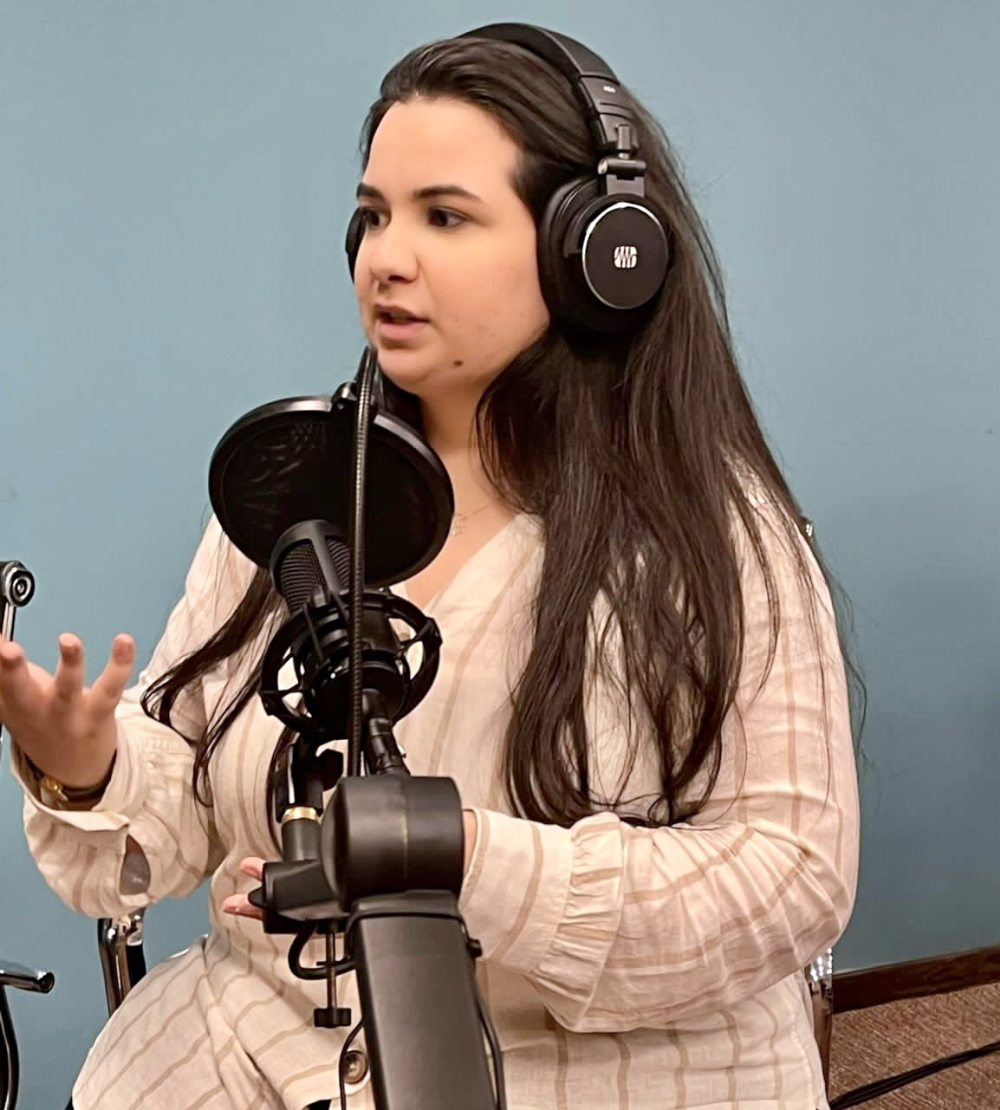RIYADH: At 7 a.m. sharp, Samar Al-Mizari’s alarm clock signals the start of another busy day in the world of broadcast news. Each morning, at the breakfast table before heading out the door, she scrolls through her emails and social media apps to get up to speed with the day’s events.
Al-Mizari is a Palestinian journalist and producer at Al-Arabiya in Dubai — part of a young and ambitious generation of Arab women making a name for themselves in the region’s flourishing media industry.
“When I studied media at the American University in Dubai, what caught my attention was how most media classes had more girls than men, and this is evidence that the media today and tomorrow will be presented by Arab women,” Al-Mizari told Arab News.
“In our class, there were students from Saudi Arabia, Sudan, Lebanon, Syria, Palestine and Jordan, and we were working and staying up all night together to prepare press materials using our different backgrounds. We were all young ambitious ladies, and, in one way or another, we worked really hard on our talents and always fought battles, and this made the class more fun.”

Razan Tariq, a Saudi TV presenter on SBC, says her father initially disapproved of her decision to pursue a career in the media. (Supplied)
Indeed, thanks to greater opportunities for work and training, Arab women now regularly host prime-time television news and report from the scenes of major stories.
“It is often said that women are driven by their emotional characters or are too sensitive, that they are unable to face difficulties in their careers,” said Al-Mizari.
“When I entered into my challenging profession, I saw honorable and hardworking examples of women of all different ages leading tasks required of them thoroughly.”
And yet, despite recent progress, women are still underrepresented in media ownership, information production and in decision-making positions worldwide.
These gender inequalities are even more pronounced in media content, with the subjects of news, features and programming dominated by men.

Samar Al-Mizari, a Palestinian journalist and producer at Al-Arabiya in Dubai, is part of an ambitious generation of Arab women making a name for themselves in the region’s flourishing media industry. (Supplied)
A 20-year study by UN Women found that, as of 2015, just 24 percent of the subjects quoted, interviewed or written about in newspapers, on television and on radio news were women.
According to a Reuters Institute fact sheet published in 2020, which analyzed the gender breakdown of top editors in a strategic sample of 200 major online and offline news outlets in 10 different markets across four continents, just 23 percent of top editors were women, despite the fact that, on average, 40 percent of journalists in the 10 markets were women.
To address this imbalance, efforts are being made to increase the presence of women in the media and in leadership positions.
Al-Mizari says it is essential that women are properly represented, both in media production and as subject matter, as no one is better qualified to explain or document the experiences of Arab women than Arab women themselves.
Like Al-Mizari, women in the Arab world have worked hard to overcome barriers to entering traditionally male-dominated industries.

Many universities have established media and communications programs, which have aided young women in their pursuit of careers in journalism. Among them is the Mohammed bin Rashid School for Communication in Dubai, which offers students the chance to attend on full scholarships.
Mousa Barhoum, a professor of journalism at MBRSC, says most of his students nowadays are ambitious Arab women.
“I am one of those who expects an increased feminization in the Arab media in the future,” Barhoum told Arab News. “From my experience teaching media students at MBRSC, I found that they are creative, intellectually liberated, and have a desire to produce different and creative media.
“I don’t like the phrase ‘women’s empowerment’ because it suggests that the action comes from outside. The Arab woman is now grabbing her role and status, and empowering herself on her own.”

Reem Hambazaza, a Saudi journalist who studied journalism at the University of Business and Technology in Jeddah, says media and journalism courses have evolved in recent years, allowing women to keep pace with an ever-changing profession.
“Women have a strong presence in the media industry, as many of my coworkers are female,” said Hambazaza. “This field has altered dramatically in the last 10 years and Saudi Vision 2030 will enable women to play more prominent roles in the media.”
Arab women have also progressed rapidly in the industry thanks to the advent of social media, which has enabled the growth of citizen journalism and microblogging. For instance, Aya Ramadan, a Syrian TV host for Al-Aan in the UAE, began her career on social media before moving into television.
“Western media doesn’t care if the presenter is female or male,” Ramadan told Arab News. “The Arab world is also adopting this way of thinking. They search for qualified individuals that can do the job and this is why there is strong support for women in all media specializations, such as broadcaster, telecaster, news director, producer, journalists and more.”

While a combination of college courses, job opportunities, social media platforms and raw ambition have fueled this rapid development, cultural attitudes have been slower to change. Many women continue to face opposition from family members and wider society.
Razan Tariq, a Saudi TV presenter on SBC, says her father initially disapproved of her decision to pursue a career in the media.
“At first, my father was against me being in the media and refused to let me study it because he comes from a conservative family and until now, some of my family members don’t talk to me,” Tariq told Arab News.
“But with time, he changed his mind and now he likes my TV show and he always posts about me on his Facebook account. Also, I am fortunate to have the support of my great husband, who is also in the media industry, and whenever I feel tired from my job, he supports me and believes that what I’m doing is important.”
Tariq says she was inspired by the words of Saudi Crown Prince Mohammed bin Salman in a recent interview with Bloomberg.
“I support Saudi Arabia, and half of Saudi Arabia are women,” the crown prince told the outlet. “Therefore, I support women.”














